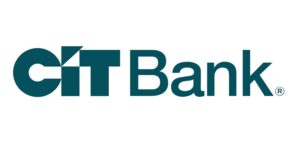
Prepaid debit cards are just like bank debit cards except they aren’t linked to a bank account. Prepaid debit cards work by loading them with money, and as you spend the money, it is deducted form your balance. Once the balance is depleted, you must reload the card with more funds before you can use it again. Continue reading to learn the pros and cons of prepaid debit cards!
Prepaid Debit Card Pros
Prepaid cards have become a U.S. mainstream payment instrument and are no longer just for those who don’t have bank accounts, according to NBC News. Here are the advantages of using a prepaid card:
- No credit check: Prepaid cards don’t require a credit check. They might be a good option if you have bad or poor credit.
- No risk of overdrawing: You cannot overdraw a prepaid debit card. When you don’t have the money in your account to pay for something, the transaction will be declined.
- Works like cash: Using prepaid cards is like using cash — and if you lose your cash, you’re out of luck. The upside is that no one can use a lost or stolen prepaid card without knowing your pin number.
- Your personal information is safe: Prepaid debit cards aren’t linked to any of your personal or financial data, so your sensitive information can’t be stolen.
- Convenient to reload: Prepaid, reloadable debit cards enable you to add funds in a number of ways: via direct deposit, transfers from your checking account, purchasing a “reload pack” or adding funds at the card issuer’s institution or certain retail locations.
- No credit risk: Debit and prepaid debit card activity isn’t reported to the three major credit bureaus like credit card activity, so you don’t have to worry about credit dings.
Prepaid Debit Card Cons
Just like any other financial product, they will have downsides if not used properly. Consider these cons against their pros before you decide if a prepaid card is right for you.
- Multiple fees: Prepaid debit cards with no fees are unlikely. Usually, you’ll pay fees for activation, ATM withdrawals and more. The list of free prepaid debit cards is short, but you can find some with few fees. For instance, the Walmart prepaid card offers free direct deposit, free online bill pay and free cash off your card at Walmart MoneyCenters and customer service desks.
- No credit building: Although a prepaid card can’t hurt your credit report, it also won’t help you rebuild it. Credit bureaus don’t include prepaid debit card history when calculating your credit score.
- Less security: The kind of protection you get against fraud and unauthorized charges on your prepaid card varies among card issuers; some card providers have stronger protection than others. But good news is on the horizon: Effective April 1, 2019, the Consumer Financial Protection Bureau’s new rule will offer guaranteed legal rights for prepaid account users, such as protection against loss and theft.
- No FDIC Insurance: If your bank fails, the government guarantees up to $250,000 of your money in an individual bank account. The same cannot be said for money on a prepaid debit card. The best prepaid cards might be eligible for FDIC “pass-through insurance,” but they must meet certain qualifications.
 |
 |
Bottom Line
Although it might be a tempting idea to pick up a prepaid card for its convenience and simplicity, don’t forget that you won’t be able to build your credit or enjoy safety features associated with bank account cards. Before you decide if this card is right for you, check out all these pros and cons. For more posts like this, check out our list of bank guides!




Leave a Reply